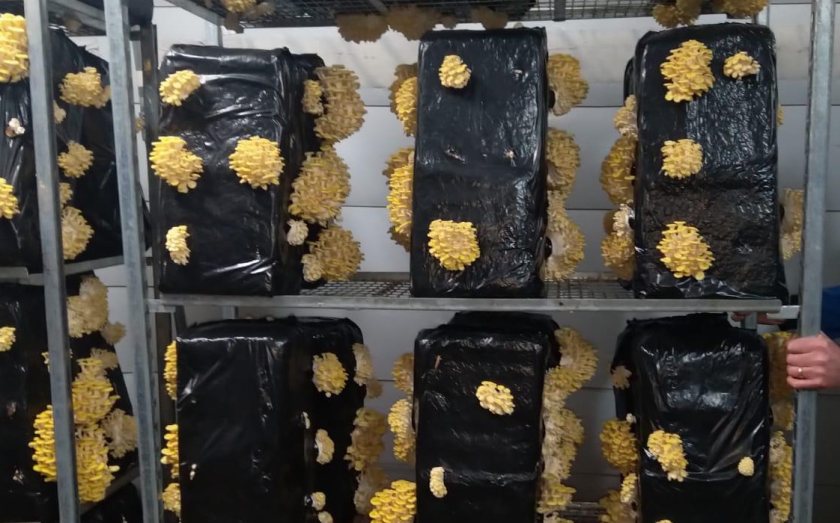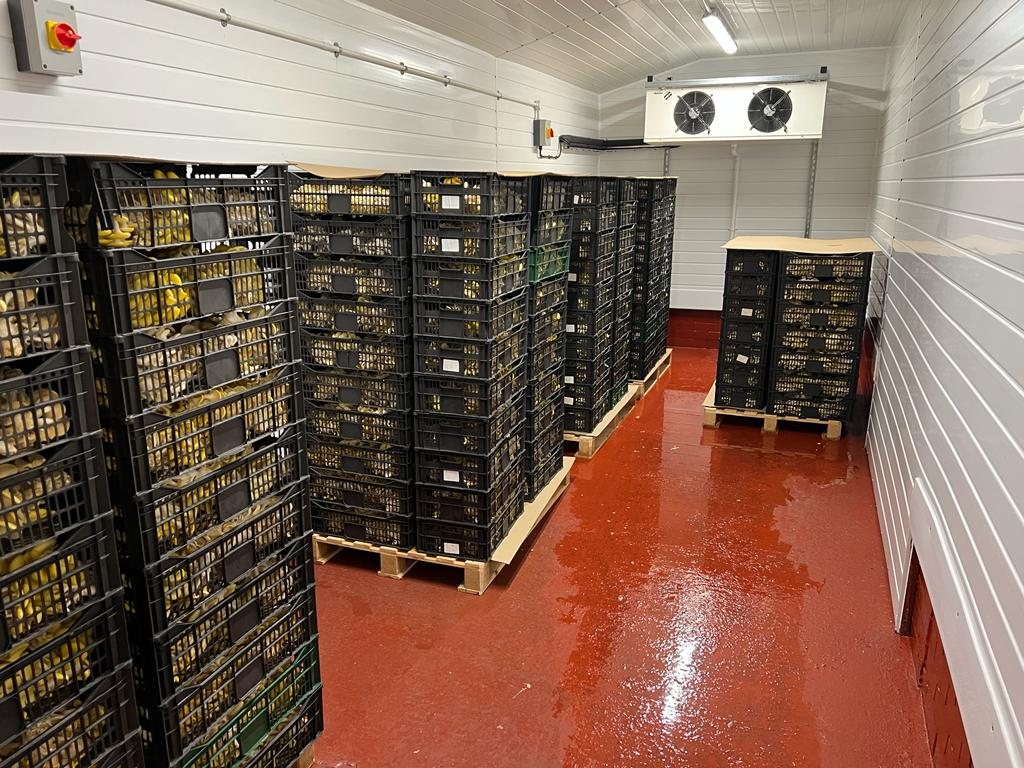
As farmers increasingly seek to boost profitability and sustainability, diversifying into mushroom production could offer many a promising opportunity.
The demand for mushrooms in the UK is increasing, with the global edible mushroom market forecasted to grow by 9.5% between 2021 and 2028.
In this article, free range egg magazine The Ranger talked to Anglia Free Range Eggs on their latest venture, who are leveraging this opportunity.
Many British farms have smaller, redundant buildings such as old barns, outbuildings, or unused storage facilities.
According to Clair Bullen, marketing manager at Anglia Free Range Eggs, these spaces can be easily converted into controlled environments for mushroom cultivation.
She explained: "Mushrooms don’t require sunlight; in fact, they thrive in dark, humid conditions, making these buildings ideal candidates for mushroom farming with minimal renovation."
Clair is also the commercial manager at the Little Mushroom Company set up in 2022, as a partnership between John Dorrian from Smithy Mushrooms in Lancashire, and American plant-based chef Derek Sarno.
“Leading vegan chef, Derek Sarno has been a part of our story and one of our biggest champions from the very start”, said Clair.
Derek, who has written cookery books and is co-founder of the Wicked Kitchen website, has spearheaded the culinary vision for the project.
He said: “This project is about what we can accomplish when farmers, chefs and the community come together with a shared goal of sustainability and nutritious food.
"We’re not just swapping chickens for mushrooms; we’re redefining how we farm and cook.
"I’ve worked with these mushrooms for years and know how they can replace meaty textures in almost every sense, surprising both chefs and home cooks alike.”
According to Derek, several similarities between poultry farming and mushroom farming make such a transition possible.
He said that the first-of-its-kind project was one that he “once dreamed of making happen” a decade ago.
Clair added: “It is amazing to think that we can grow nutrient rich food with less water, less land, minimal inputs and no animals.
"Mushrooms have a relatively low environmental footprint compared to other food sources, requiring minimal water, space, and energy to produce.”
The trial grows Oyster mushrooms - Pleurotus ostreatus - so named due to their colour and shape.
They normally grow in the wild in many temperate and subtropical forests throughout the world on rotting tree trunks, such as deciduous trees, like Beech.
They can be found all year round in the UK and they have a mild, slightly aniseed taste and are much valued by gourmet cooks.

“We considered other species such as shiitake and lions mane, but the latter is difficult to source,” Clair explained.
“We have split the building into half so have ended up with eight growing rooms in all four sheds.
"Mushrooms need conditions that replicate an autumn day - moist, quite a long dark period with a shorter period of light, humid and damp, warm but not too hot.
The ideal temperature for growing oyster mushrooms is between 15 - 25 degrees celsius.
Different varieties of oyster mushrooms have different temperature requirements, such as blue-grey oysters that grow best in cooler temperatures, and pink oysters that grow best in warmer temperatures.
The ideal humidity level for growing oyster mushrooms is between 85% and 90%, and they also require good ventilation and low light conditions.
Misting systems or humidifiers can maintain these levels in enclosed spaces.
Mushrooms are becoming a staple in many diets due to their nutritional value, unique flavours, and versatility in cooking.
The UK mushroom market is valued at over £400 million annually, and it’s projected to grow.
For those with small, underutilised or redundant buildings, mushroom farming could provide a viable venture that requires relatively low start-up costs, has high demand, and can turn small spaces into productive, profitable assets.
Mushroom production not only taps into this growing demand but can also align with environmental and health-conscious consumer trends.
Farmers with small spaces may be particularly well-suited to growing gourmet or specialty mushrooms, which command higher market prices per kilogram than standard varieties.
Gourmet mushrooms can sell for between £10 and £20 per kilogram at retail, and even more for unique varieties at farmers’ markets or through direct sales to high-end restaurants.
For farmers looking to start small, an initial investment can range from £5,000 to £10,000, covering equipment for climate control, ventilation, shelving, and basic substrate and spawn supplies.
Larger operations with greater automation and climate control may cost upwards of £30,000.
Annual operational costs are primarily for substrate, spawn, and utilities. According to estimates, a small-scale operation producing around 500 kg of gourmet mushrooms monthly can generate gross revenues of around £5,000 to £10,000, depending on the variety and market.
Specialty mushrooms often sell at higher margins, allowing for more profitability even at small scales.
Clair concluded: “These trials have given us greater confidence that this is a viable operation, having had relatively low initial investment, high market demand, and quick production cycles.
"Whilst it is not yet commercially self-sustaining, we are confident that we have proof of concept and can look forward to developing further.
"We are currently supplying Tesco and are looking to expand into wholesale/food service and other retail outlets. We need to scale up to secure long term commercial viability.
"Our ultimate goal is to replicate this and create a sustainable business model and involve more farms."
